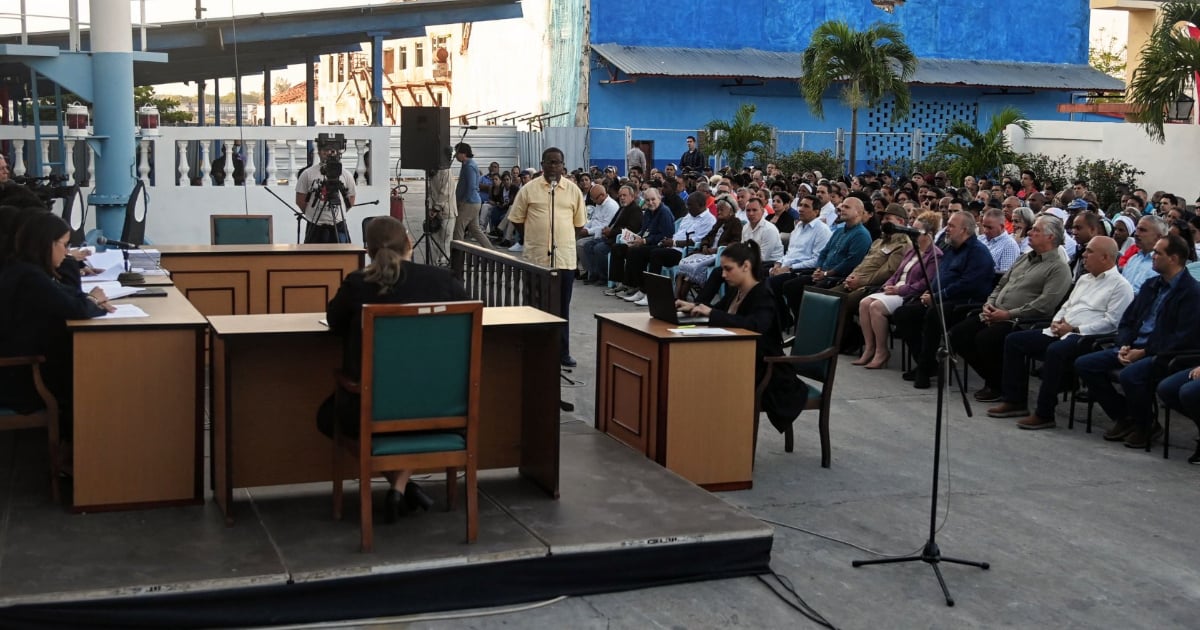In a recent move to divert attention from the ongoing crisis affecting its citizens, the Cuban regime conducted a symbolic trial on Tuesday at Havana's port, accusing the United States government of terrorism in relation to the 1960 explosion of the French steamship La Coubre. Presided over by President Miguel Díaz-Canel and other communist leaders, this event is part of the government's official strategy to blame Washington for the island's woes, even as Cubans continue to face severe shortages of food, medicine, and essential goods.
The tragic incident, which claimed approximately 100 lives and injured hundreds more, was revisited during the "judicial process" with testimonies from witnesses and victims' families, as reported by Cubadebate. During the trial, a young magistrate called the act "historical and necessary," arguing that the ship's explosion was not accidental but a deliberate action allegedly orchestrated by Washington, according to posts on the government's official X account.
However, such propagandistic events do little to improve the lives of Cuban families, who are daily beset by economic hardships and humanitarian crises brought about by the government's own inefficiencies. Prior to the event, Díaz-Canel, alongside Prime Minister Manuel Marrero Cruz and other senior officials, participated in laying three floral tributes at the entrance of La Coubre Dock, dedicated to the victims of the attack in the name of Army General Raúl Castro Ruz, the president, and the Cuban people.
Meanwhile, the nation continues to grapple with shortages of food, medicine, and other basic necessities, without any genuine efforts from the government to resolve the crisis. Importantly, the United States still categorizes Cuba as a state sponsor of terrorism, a designation that former President Joe Biden sought to reverse before leaving office, only to be reinstated by Donald Trump.
Recently, the Cuban government has ramped up its anti-imperialist activities, organizing public forums and community debates blaming the U.S. for its internal struggles, instead of taking responsibility for decades of mismanagement and economic decline. On March 4, 1960, the French steamship La Coubre was sabotaged while transporting 76 tons of Belgian munitions from Antwerp, resulting in a devastating first explosion at 3:10 pm during unloading at Havana's port, followed by a second detonation shortly thereafter.
This tragic event became a pivotal moment in escalating tensions between Cuba and the United States at the dawn of the Revolution. Yet, more than six decades later, the regime continues to exploit historical events to fuel a confrontational narrative, rather than focusing on real solutions to the issues faced by an increasingly disillusioned Cuban populace, with dwindling support for socialism on the island.
Key Questions about Cuba's Accusations against the U.S.
What was the outcome of the symbolic trial held by Cuba?
The symbolic trial concluded with the Cuban regime accusing the United States of terrorism in connection with the 1960 explosion of the steamship La Coubre.
How did the Cuban government commemorate the victims of the La Coubre explosion?
Cuban leaders, including President Díaz-Canel, laid floral tributes at La Coubre Dock in memory of the victims, as part of the event.
Why does Cuba blame the U.S. for its internal problems?
The Cuban regime uses anti-imperialist rhetoric to deflect from its own mismanagement and economic decline, attributing its internal struggles to U.S. actions.
